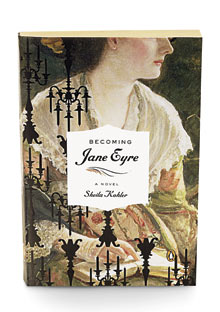Reading Questions for Becoming Jane Eyre
Warning: May contain spoilers

Photo: Marko Metzinger/Studio D
1. Charlotte makes repeated reference to Angria, the imaginary world that she and her siblings created. At what points in the novel does she do so? From those examples, what do you believe this world means to her? As a child, did you have your own imaginary world or imaginary friend?
2. Which men in Charlotte's life are melded together into the character of Edward Rochester, Jane Eyre's love? What experience or character trait does each of these men provide? What do all the men in the novel have in common?
3. Have you ever read Jane Eyre ? If you have, how does it compare with Kohler's novel? If you haven't, will you read it now? Have you read any of the other Brontë novels mentioned in the book?
4. Why do Charlotte's father and her siblings dote on Branwell, despite his behavior? Do you believe his addiction is an illness or a moral failing? What is Charlotte's opinion?
5. Kohler sees Jane as the literary representation of the life and personality of Charlotte Brontë. Which character within Becoming Jane Eyre do you find the most appealing?
6. What is Charlotte's father's first response to the idea of her writing a book? Why? How is this indicative of the era and the biases that Charlotte was struggling against?
7. After the publication of Jane Eyre , Charlotte has money for the first time in her life. What is her reaction? What effect does her success have on others?
8. The Brontë sisters wrote under the male pseudonyms of Currer, Ellis, and Acton Bell. Why? How is the choice of these names significant?
9. Have you ever written poetry, kept a diary, or used writing in some other way to express your emotions? What result did this have? Can you imagine sharing this work with the public as Charlotte did?
10. Noted Victorian-era critic George Henry Lewes claimed that Jane Eyre was "soul speaking to soul"—did you find this to be true? Did Charlotte's life connect with your own in any particular way?
Read O 's review
Get more reading guides



